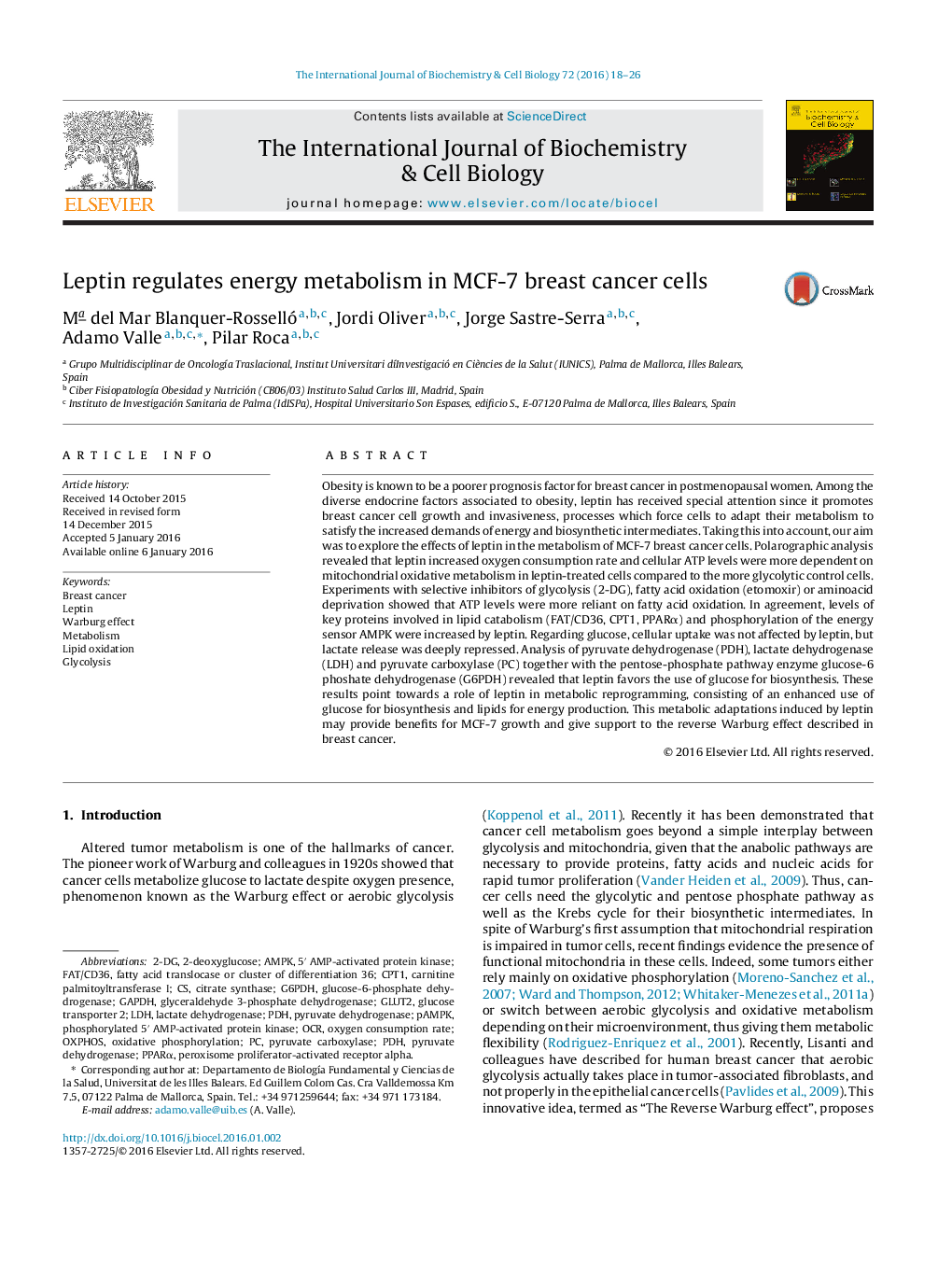| Article ID | Journal | Published Year | Pages | File Type |
|---|---|---|---|---|
| 8322346 | The International Journal of Biochemistry & Cell Biology | 2016 | 9 Pages |
Abstract
Obesity is known to be a poorer prognosis factor for breast cancer in postmenopausal women. Among the diverse endocrine factors associated to obesity, leptin has received special attention since it promotes breast cancer cell growth and invasiveness, processes which force cells to adapt their metabolism to satisfy the increased demands of energy and biosynthetic intermediates. Taking this into account, our aim was to explore the effects of leptin in the metabolism of MCF-7 breast cancer cells. Polarographic analysis revealed that leptin increased oxygen consumption rate and cellular ATP levels were more dependent on mitochondrial oxidative metabolism in leptin-treated cells compared to the more glycolytic control cells. Experiments with selective inhibitors of glycolysis (2-DG), fatty acid oxidation (etomoxir) or aminoacid deprivation showed that ATP levels were more reliant on fatty acid oxidation. In agreement, levels of key proteins involved in lipid catabolism (FAT/CD36, CPT1, PPARα) and phosphorylation of the energy sensor AMPK were increased by leptin. Regarding glucose, cellular uptake was not affected by leptin, but lactate release was deeply repressed. Analysis of pyruvate dehydrogenase (PDH), lactate dehydrogenase (LDH) and pyruvate carboxylase (PC) together with the pentose-phosphate pathway enzyme glucose-6 phoshate dehydrogenase (G6PDH) revealed that leptin favors the use of glucose for biosynthesis. These results point towards a role of leptin in metabolic reprogramming, consisting of an enhanced use of glucose for biosynthesis and lipids for energy production. This metabolic adaptations induced by leptin may provide benefits for MCF-7 growth and give support to the reverse Warburg effect described in breast cancer.
Keywords
Related Topics
Life Sciences
Biochemistry, Genetics and Molecular Biology
Biochemistry
Authors
Mª del Mar Blanquer-Rosselló, Jordi Oliver, Jorge Sastre-Serra, Adamo Valle, Pilar Roca,
